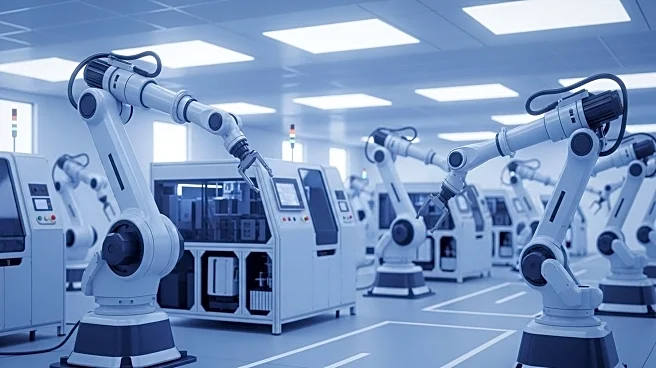What's Happening?
The manufacturing sector is being encouraged to shift away from relying on individual heroics and improvisation to solve operational challenges. The narrative often involves stories of employees like 'Butch' who save the day with quick fixes, but experts argue that this approach is not sustainable. Instead, manufacturers are advised to focus on understanding and improving their processes to prevent disruptions. The industry has long faced challenges such as supply chain issues and labor shortages, which have been exacerbated by the COVID-19 pandemic. However, the emphasis is on building resilience through strategic planning and process optimization rather than relying on last-minute solutions.
Why It's Important?
This shift in focus is crucial for the long-term sustainability and competitiveness of the manufacturing industry. By moving away from a culture of firefighting and towards proactive problem-solving, manufacturers can reduce operational costs and improve efficiency. This approach not only enhances resilience against disruptions but also positions companies to better capitalize on growth opportunities. The emphasis on process improvement and strategic planning can lead to more consistent product quality and customer satisfaction, ultimately driving revenue growth. As the industry continues to face global challenges, adopting a more systematic approach could be key to maintaining a competitive edge.
Beyond the Headlines
The cultural shift from heroics to strategic resilience in manufacturing also has ethical implications. It encourages a more equitable distribution of responsibilities and reduces the pressure on individual employees to perform under stress. This can lead to a healthier work environment and improved employee morale. Additionally, by focusing on process improvements, companies can better align with sustainability goals, reducing waste and resource consumption. This approach not only benefits the company but also contributes positively to broader environmental and social objectives.









